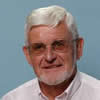The plan of the Institute of Human Sciences of Ritsumeikan University in Kyoto to develop in the context of the Human Services Research Center (HSRC) a new discipline called "Science of Human Services" is an original and challenging initiative that meets the growing needs in today's fast developing and globalizing world to comply with a large variety of problems that confront distinct sectors of society such as family live, education, children and adults with special needs, health care, care for elderly people, professional development, etc.
Unravelling, understanding, and contributing to a potential solution of the problems in all these domains requires the cooperation of teams of researchers that represent a wide variety of expertise in the social and behavioural sciences broadly conceived.
Takings school education as an example, current research on learning and instruction points to the necessity of rethinking and reforming classroom teaching, based on a novel conception of the goal of education as acquiring adaptive competence in the subject-matter domains of the curriculum. And this is accompanied by a new perspective on student learning as the active construction in powerful (technology-supported) learning environments of knowledge, and cognitive and self-regulation skills, as well as the development of interest in and positive beliefs about these domains. But classrooms are embedded in schools, that are in turn nested in a local community which is part of the wider society. Therefore, it is indispensable to take into account the contextual, social, and organizational dimensions of classrooms and schools wherein reforms are induced.Consequently, the research addressing the design and evaluation of innovative curricula and powerful new learning environments requires a holistic and comprehensive approach and represents a joint challenge for scholars in instructional psychology, educational technology, teacher education, school innovation and improvement, but also sociologists of education.
But, studying and widely disseminating the new perspective on learning and teaching, and the related innovative learning environments in educational practice will also require partnership and cooperation between researchers and educational professionals. In this regard, one has first of all to take into account that the intended new instructional practices should be feasible in existing classrooms. Furthermore, upscaling innovative classroom teaching is not just a matter of acquiring a set of new instructional techniques, but it calls for a fundamental and profound change in teachers' beliefs, attitudes, and mentality. Moreover, educational professionals can not only help in translating theory into practice, and, thus, in making classroom teaching more research-based, their partner role can also contribute to make research more practice-driven.
Cutting-edge research in all domains is today more and more a matter of interdisciplinary cooperation. The intended "Science of Human Services" discipline has the potential of being a model in this respect.

FROM FOREIGN RESEARCHER
 |
Erik De Corte (University of Leuven, Belgium) |






